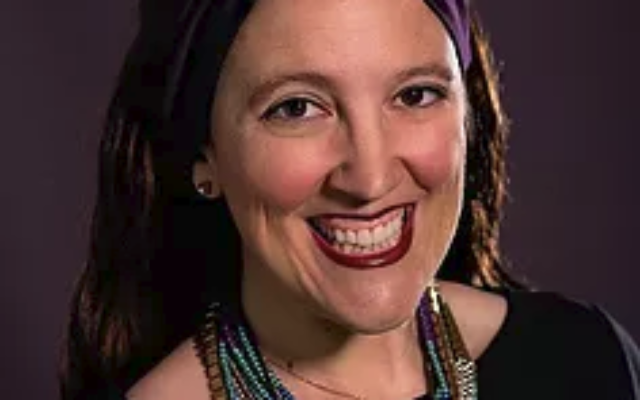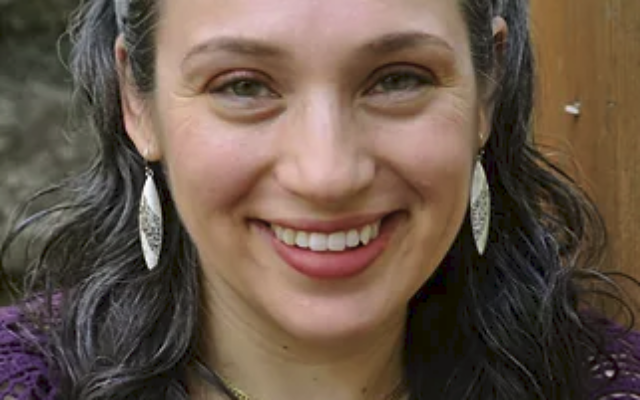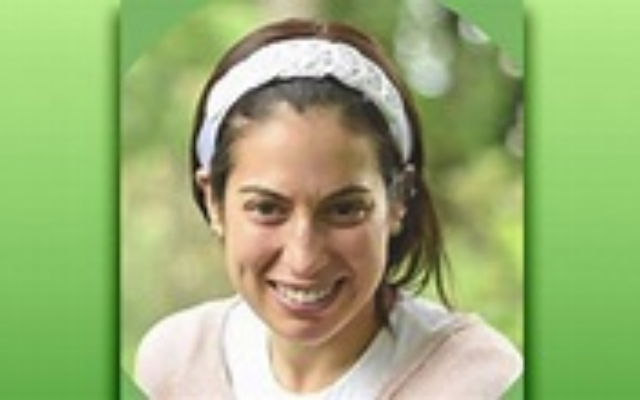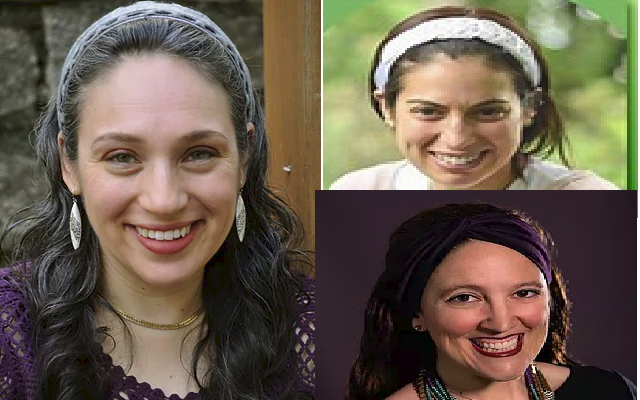What is a Rabba?
Women with years of Torah scholarship and rabbinic certification under their belts have emerging roles in the Orthodox Jewish world. Meet Atlanta’s Rabba, Darshanit, and Yoetzet Halacha.
Chana Shapiro is an educator, writer, editor and illustrator whose work has appeared in journals, newspapers and magazines. She is a regular contributor to the AJT.
Women with years of Torah scholarship and rabbinic certification under their belts have emerging roles in the Orthodox Jewish world. Meet Atlanta’s Rabba, Darshanit, and Yoetzet Halacha.

Rabba Melissa Scholten-Gutierrez
Rabba Melissa Scholten-Gutierrez received rabbinic semikhah (ordination) in 2018. She did not intend to become a pulpit rabbi, though, and she does not call herself a rabbi. “A rabbi is a man,” she explains, “and I am a woman, a rabba.” She embarked on an in-depth curriculum of Jewish studies at Yeshivat Maharat, which grants rabbinic ordination to women through an intensive education in Jewish law and pastoral counseling.
According to its website, “Maharat is the first yeshiva to ordain women as Orthodox clergy … to serve as spiritual and halachic guides. By expanding leadership to include women, we seek to enliven the community at large with a wider array of voices, thoughts and perceptions.”
Scholten-Gutierrez is the director of family education and engagement at the Jewish Federation of Greater Atlanta and the clergy advisory chair for MACoM (Metro Atlanta Community Mikvah). She is on the executive committee for the Jewish Women’s Fund of Atlanta, and was among the first cohort of women in their Agents of Change Training fellowship.
“My grandfather was my religious inspiration. I knew there was more out there for me, and I kept searching until I found it,” Scholten-Gutierrez explains. “I entered Maharat in 2014, the only program giving women a full rabbinic education. My soul was pulled in that direction; you could say that my soul needed semicha (ordination), not in order to change Orthodoxy, but to empower women to embrace Orthodoxy for what it is and can offer.” Rabbinic semicha is conferred by one rabbi upon another, and Maharat, in order to prevent favoritism between its teachers and their students, arranges for an outside rabbinic authority to give prospective rabbis a comprehensive oral examination. Rabbi Daniel Ferber came from Israel to test Scholten-Gutierrez at the end of her fourth year at Maharat.
Scholten-Gutierrez does not seek a rabbinic role, yet because of her high visibility and interaction with women in Atlanta, her halachic knowledge allows her to address many sensitive subjects. “I was a social worker before I entered the Jewish professional landscape, and I bring this caring background with me. When a woman comes to me, it may be about female medical or baby-nursing problems, phone necessity on Shabbat, mental health, isolation, eating disorders, and fasting, and I may offer information about help hotlines geared for religious people. At the same time, many halachic questions should be answered by one’s rabbi in the context of a woman’s own Orthodox community.”
“Having full rabbinic ordination and the education which preceded it, has opened personal and professional doors, both in ways I completely expected and never could have imagined,” Scholten-Gutierrez says. “I want to help our Jewish communal organizations to be more intentionally Jewish, more intentionally diverse, more intentionally equitable. I have a passion for Jews being welcomed and embraced in our full diversity, for families to find their place in the Jewish communal landscape, and for Jewish communal professionals to have access to the resources and education they need to support their work. I’m blessed to be able to do these things in my work at the Atlanta Jewish Federation.”

Darshanit Miriam Udel
Miriam Udel, associate professor of German Studies and Jewish Studies at Emory University, completed the Kollel Executive Ordination Track at Yeshivat Maharat in 2019. Its goal is to bring qualified mid-career women into the Orthodox rabbinate.
At a young age, Udel chose to attend an Orthodox synagogue, which soon led to a conflict between her feminist, progressive values and men’s and women’s distinct roles in Orthodox services. “I understood that if I wanted to properly grapple with these questions,” she explains, “I needed to know what was in our sacred texts. And for that I would need to be able to read them in the original.”
As an undergraduate student, Udel helped coordinate the women’s prayer group, part of Harvard Hillel’s Orthodox minyan, and before starting graduate school, she studied for two years at seminaries for Orthodox women in Jerusalem.
More recently, while maintaining her commitments at Emory and participating in Atlanta advanced Jewish learning, Udel deepened her studies of Talmud and Jewish law in 2016 when she entered Yeshivat Maharat’s mid-career ordination track.
Upon completing the program in 2019 Udel chose the title of Darshanit, the female form of darshan, meaning expounder of scripture. Udel selected the title to honor Rivke Bas Meir Tiktiner, a preacher in late 16th century Prague and the first woman to write a book in Yiddish. The introduction to her guide to Jewish law, which was posthumously published in 1609, describes Tiktiner as a darshanit v’rabanit, a female interpreter of scripture and female rabbi. Tiktiner’s book is a Torah commentary for women with chapters organized according to interpersonal relationships, including spouse, mother-in-law, and children.
The title Darshanit, interpreter of scripture, appealed to Udel because she does not see her role as simply doing what male rabbis have always aspired to do. “The deep dream of feminism is to remake the shape of our aspirations altogether: to admit new strivings from our experiences as women, people of color, members of the LGBTQ community and others who have been shut out by traditional power structures. To give that project wings,” Udel writes, “we need new language, and to give it roots, we need very old language, and the title Darshanit offers both.” At Emory University and beyond, Udel interacts with many young women for whom she models Orthodox female scholarship and social activism.

Tova Warburg-Sinensky, Yoetzet Halachah
Nearly five years ago, Rabbi Adam Starr, of Modern Orthodox Congregation Ohr HaTorah, contacted Nishmat, a prestigious center for women’s scholarship and leadership. Nishmat created the new religious role of Yoetzet Halachah, a female halachic (Jewish law) adviser, focused on Orthodox women’s specific needs. Nishmat offers an accredited course of study in which women are immersed in strenuous Torah scholarship and become active in religious leadership. “It was the next step in our synagogue’s growth,” Starr explains. “In communication with our membership, I learned that the Atlanta Orthodox community would benefit by engaging a Yoetzet Halachah.” Yoetzet Halachah literally means Adviser in Jewish Law.
The Nishmat curriculum includes in-depth study of Hilchot Niddah (specific female-related laws), under the mentorship of outstanding scholars and “poskim” (who determine cases of law where previous authorities are inconclusive or where no clear legal precedent exists), as well as supplementary studies in women’s medicine. Applicants to the Nishmat certification program are selected on the basis of Talmudic scholarship, religious commitment, and demonstrated leadership potential.
Congregation Ohr HaTorah selected Tova Warburg-Sinensky to fill that role; she visits Ohr HaTorah several times a year and can be reached remotely all year round. Rabbi Starr explains, “Our Yoetzet Halachah is the only one in Atlanta; however, although we sponsor her, she responds to questions and concerns of women throughout our diverse Orthodox community.” Women’s issues may include fertility decisions, medical and biological questions, psychological and family purity issues (mikveh laws and observance), and other matters concerning a woman’s body.
Warburg-Sinensky provides halachic guidance under the supervision of Rabbi Starr. “Our Yoetzet Halachah gives community lectures, is on the advisory board of the Jewish Fertility Foundation, and answers hundreds of questions from Orthodox women,” Starr states. “It’s important for Torah-observant women to know and be inspired by women who are Torah scholars and with whom they feel comfortable discussing sensitive personal concerns.”
- Chana Shapiro
- jewish federation of greater atlanta
- Business & Professionals
- Community
- Rabba
- torah
- Orthodox
- Atlanta
- Rabbi Daniel Ferber
- Darshanit
- Yoetzet Halacha
- rabbinic
- semikhah
- ordination
- Women
- Rabba Melissa Scholten-Gutierrez
- Yeshiva
- Jerusalem
- Yeshivat Maharat
- MACoM (Metro Atlanta Community Mikvah)
- Agents of Change Training fellowship
- Darshanit Miriam Udel
- Emory University
- Kollel Executive Ordination Track
- Harvard Hillel
- Rivke Bas Me’ir Tiktiner
- Talmud
- scripture
- LGBTQ
- Tova Warburg Sinensky
- Yoetzet Halachah
- Scholarship
- rabbi adam starr
- Ohr HaTorah
- Nishmat
- Hilchot Niddah
- female laws
- poskim
- certification
- fertility
- Mikvah
- Congregation Ohr HaTorah
- Jewish Fertility Foundation
- Jewish Women’s Fund of Atlanta
- social worker
- female medical
- baby-nursing problems
- Shabbat
- Mental Health
- Isolation
- eating disorders
- German Studies
- Jewish Studies
- Fasting




comments